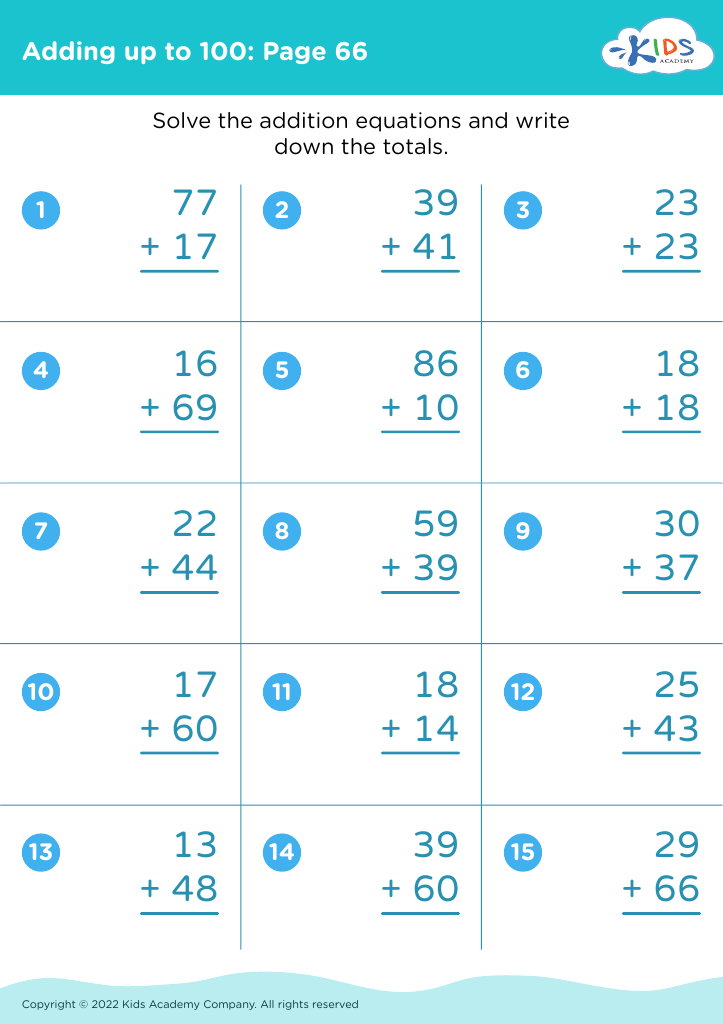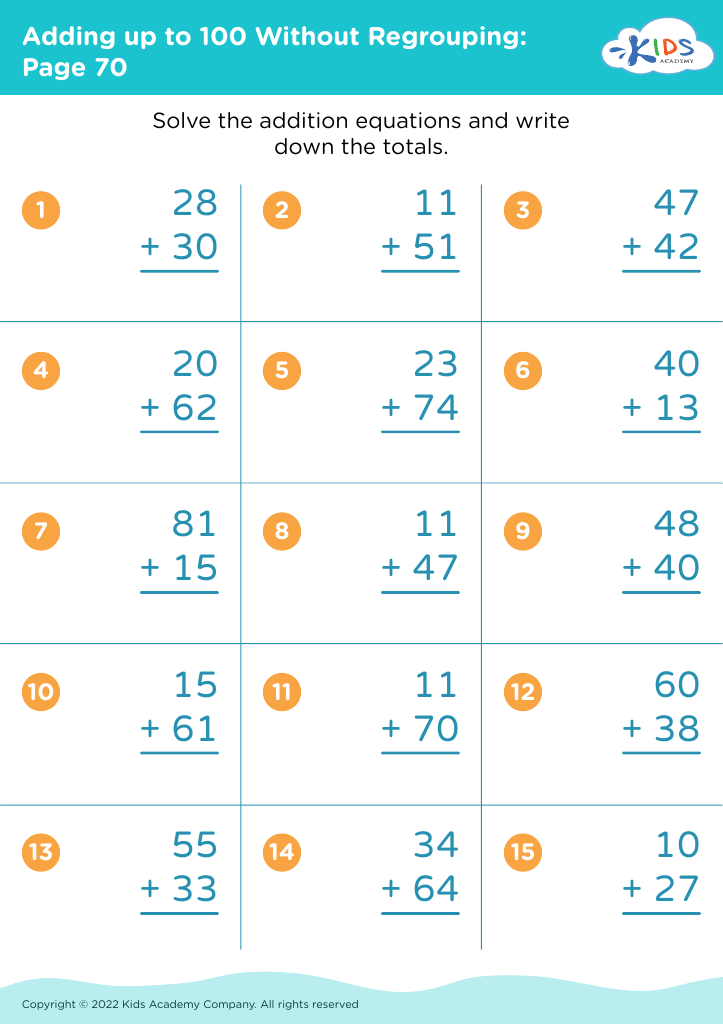Enhance problem-solving skills Adding up to 100 Worksheets for Ages 4-8
3 filtered results
-
From - To
Boost your child's problem-solving abilities with our engaging Adding up to 100 Worksheets, designed for ages 4-8. These fun and educational activities help young learners develop essential math skills, including addition and critical thinking, through colorful and interactive exercises. Perfect for early learners, these worksheets build a strong foundation in basic math while encouraging your child to tackle challenges confidently. Watch as your little one progresses from simple sums to mastering more complex problems, all in an enjoyable and stimulating way. Explore our collection now and turn math practice into an exciting adventure!
Parents and teachers should emphasize enhancing problem-solving skills and working with numbers up to 100 for children aged 4-8 because these foundational abilities foster critical cognitive development. At this formative stage, problem-solving nurtures logical thinking, creativity, and persistence. These skills are not only essential for academic achievements but also for navigating everyday challenges.
Working with numbers up to 100 equips children with essential early math skills. Proficiency in basic arithmetic forms the basis for understanding more complex mathematical concepts, like multiplication or division, that students will encounter in later grades. This confidence with numbers enhances their ability to follow multi-step processes and strengthens memory retention and recall.
Developing these skills in early childhood sets a positive learning trajectory. It cultivates an enthusiasm for learning, as children who feel competent in their problem-solving abilities are more likely to engage with new challenges. Moreover, fostering such skills at an early age supports overall cognitive development, including improved language skills and better focus and concentration.
In a world increasingly driven by technological advancements and analytical thinking, nurturing strong problem-solving and numerical proficiency in young children provides them with a competitive advantage, both academically and in life. By prioritizing these skills, parents and teachers help lay the foundation for success in various future learning endeavors and practical scenarios.








%20(1).jpg)








